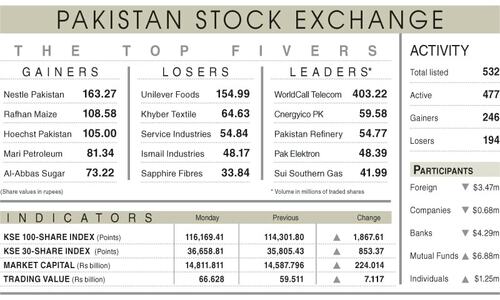TEHRAN, Feb 17: Iran’s Bank Mellat unveiled plans on Tuesday to sell a 80 per cent stake to private investors despite being under US sanctions, making it the first state-owned bank in the Islamic republic to be privatised.
Mellat chairman Ali Divandari told reporters that talks were underway with a number of European and Gulf banks and that the sale will take place over the next two years.
The Mellat sell-off is part of a privatisation drive ordered by the energy-rich nation’s supreme leader Ayatollah Ali Khamenei in 2006 but which has made only sluggish progress since.
Mellat aims to sell five per cent of its shares on Wednesday by “inviting price bids from private investors,” Divandari said.
Another 15 per cent would be sold over the course of the first year, with the remaining 60 per cent sold in the second year.
Divandari said several investors have shown interest in buying “shares in blocks in order to play a managerial role” once the bank is privatised.
Fathali Khoshdin, who is overseeing the privatisation, said the sale was a “good opportunity” for Mellat, which was hit with US sanctions last year.
“We have been seeking this for a long time as this gives a free hand to the bank” to do business the way it wants, he said.
In particular, privatisation should remove government involvement in the bank’s lending and interest-rate policies.
“Under the present structure, we have restrictions on facilities and loans offered but after privatisation we can give loans based on the real interest rates. This is an opportunity for us to earn the right interest on the loans,” Khoshdin said.
He said Bank Mellat was selected by the government as the first bank to be privatised as it “was ready and fulfilled the requirements in the shortest time.” The state has a grip on over three-quarters of Iran’s economy and the privatisation drive has been slow despite President Mahmoud Ahmadinejad’s repeated pledges to kick-start it.
Khamenei in 2006 had called for the sale of 80 per cent of public and state institutions, excluding firms in the oil and energy sector, defence and security.
Since then, the state has sold part of its stake in steelmaker Mobarakeh in 2007.
In October, the United States imposed sanctions on three Iranian banks -- Mellat, Melli and Saderat, accusing them of financing weapons proliferation.
The sanctions forbid any financial transactions between a US citizen or private organisation, with all assets under US jurisdiction of those targeted being frozen.
In November, the US Treasury tightened its sanctions, banning “U-turn” transfers.
These are transfers made on behalf of Iranian banks, persons or the government initiated offshore by non-Iranian banks or financial institutions and passed through the US financial system en route to other offshore, non-Iranian, non-US financial institutions.
Ahmadinejad has come under severe criticism from economists for his inflation-stoking economic policies. Inflation peaked at 29 per cent in September and is currently hovering around 25 per cent.
Central bank officials have cited growth in money supply as the prime factor for the surge, but they have also partly blamed it on increased global prices.
Crude income accounts for 80 per cent of Iran’s foreign earnings, making the economy highly vulnerable to oil price shifts. —AFP













































Dear visitor, the comments section is undergoing an overhaul and will return soon.